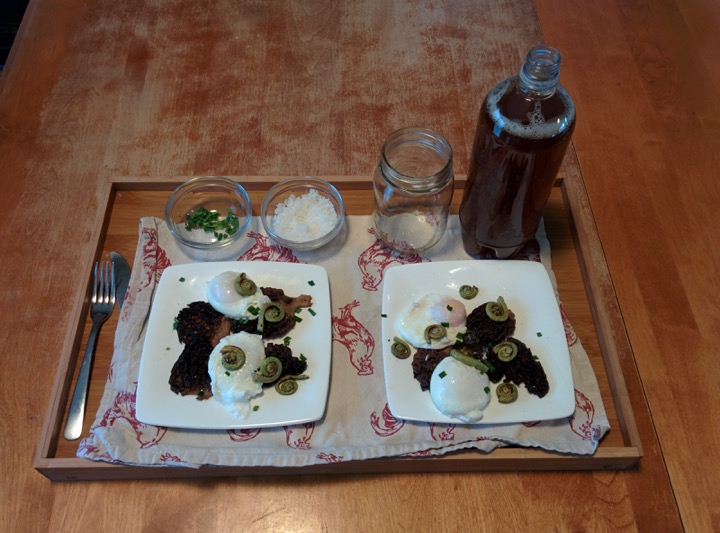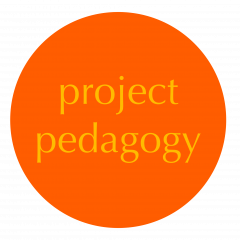This project, produced for Law 315: Business Associations (taught by Rebecca Johnson), was an engagement with questions raised in J.K. Gibson-Graham et al’s, Take Back the Economy. The project was composed of 4 parts:
-
The Menu
-
The Meal
-
Notes to Accompany the Meal (A book of poems and images)
-
A Reflection on the Project
Each of these can be seen below, along with a few reflections by the professor on the process of assessing (that is, ‘eating’) this project.
The Menu
Morels from an aging apple orchard
Poached eggs from my friends:
Rosebud, Catherine, Valentine and Ms. Stanley Featherbottom
Lady fern fiddleheads from the forest
Nodding onions from my garden
Salt boiled from China Beach seawater
Kombucha made with Morgan’s starter,
wild nettles and honey from a lost love
Everything on this menu originates in a direct relationship with a place or person. The ingredients cost no money – they were gathered through going out on the land, caring for friends, both feathered and not, and tending the garden.
The Meal

Notes to Accompany the Meal
“Private Food or Public Good?
Notes on a meal drawn from the capital of relationships
with no money down.”
Click here
Final Reflections
Click here
Rebecca Johnson on David Gill's "Breakfast Food"
This particular project, again in the context of business associations class, was a menu and a meal and a paper. This particular project was handed in at the . . . business associations exam final. I had been sick that day and was home, so the people from the office wrapped up this meal and delivered it to me, so I had a meal for two delivered to my home with the poached eggs still warm. One of the interesting things about this paper was the experience of eating the meal itself. . . This project, maybe more than any others I have encountered before, made me think very seriously about the experience of eating. So, reading the paper and thinking about the individual ingredients and items as poems, in some ways, left this meal feeling. . . like a sacrament almost more than a meal in and of itself as the labour that had been made to produce the meal made the experience of eating seem highly significant in ways that are probably true for papers but, somehow, the work in a paper feels different than the work involved in the production of food.
